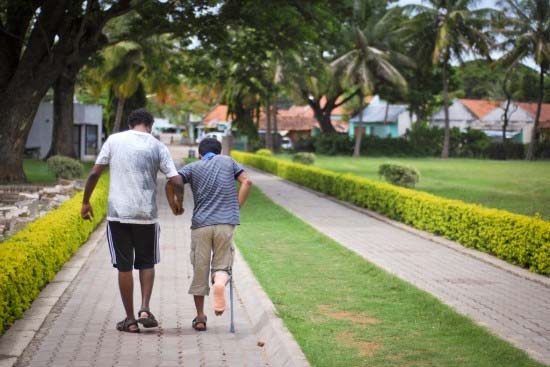
Find a way to be compassionate :
So much of our negative actions are based in fear, says Jen Hancock, author of several books, including The Humanist Approach to Happiness. Ironically, the antidote to that fear is compassion. “When we view negative people and situations through a compassionate lens, we no longer view people who scare us as giant ogres. They’re frail humans, just like us.” Next time someone cuts you off in traffic or posts something on your Facebook feed that gets under your skin, think a kind thought: “Maybe he was in a rush because of a family emergency,” or “I may not agree with her, but I admire her passion for her cause.”
Own your own stuff
That means taking responsibility for both your successes and failures without beating yourself up for it, says life coach Elaine Taylor-Klaus. “Decide that you’re going to stop making excuses to anyone, especially yourself. No more: ‘Sorry I’m late, there was a slow truck and I hit every light.’ Try, instead: ‘Sorry I’m late. I just didn’t allow myself quite enough time to get here.”
Be thankful for the good and bad
It’s not always easy to be thankful for rough times, but they help you to become a better person, suggests Colene Elridge, a life coach in Lexington, Ky. “When you’re experiencing something unfavourable in your life, stop and say, ‘What am I learning from this that I didn’t know before?’ Use every experience as an opportunity to learn.”
Avoid gossip and drama
Resist the temptation to join in the fray when your friends dish about work or the Kardashians. “When we gossip, it’s hard to feel good about ourselves,” says Alanna Zabel, a certified yoga instructor whose company, AZIAM Yoga, created a 30-Day Non-Judgment Challenge this spring. “Judging others will only drag you down.”
Always apologise
If you’ve made a mistake, ‘fess up. “Tempting as it can be to pretend to be perfect, we all fail from time to time,” says Lauren M. Bloom, author of The Art of the Apology: How, When and Why to Give and Accept Apologies.
“An effective apology can not only restore trust and heal relationships, it can also help the person making the apology cultivate honesty, humility and empathy — all wonderful qualities.” n
So much of our negative actions are based in fear, says Jen Hancock, author of several books, including The Humanist Approach to Happiness. Ironically, the antidote to that fear is compassion. “When we view negative people and situations through a compassionate lens, we no longer view people who scare us as giant ogres. They’re frail humans, just like us.” Next time someone cuts you off in traffic or posts something on your Facebook feed that gets under your skin, think a kind thought: “Maybe he was in a rush because of a family emergency,” or “I may not agree with her, but I admire her passion for her cause.”
Own your own stuff
That means taking responsibility for both your successes and failures without beating yourself up for it, says life coach Elaine Taylor-Klaus. “Decide that you’re going to stop making excuses to anyone, especially yourself. No more: ‘Sorry I’m late, there was a slow truck and I hit every light.’ Try, instead: ‘Sorry I’m late. I just didn’t allow myself quite enough time to get here.”
Be thankful for the good and bad
It’s not always easy to be thankful for rough times, but they help you to become a better person, suggests Colene Elridge, a life coach in Lexington, Ky. “When you’re experiencing something unfavourable in your life, stop and say, ‘What am I learning from this that I didn’t know before?’ Use every experience as an opportunity to learn.”
Avoid gossip and drama
Resist the temptation to join in the fray when your friends dish about work or the Kardashians. “When we gossip, it’s hard to feel good about ourselves,” says Alanna Zabel, a certified yoga instructor whose company, AZIAM Yoga, created a 30-Day Non-Judgment Challenge this spring. “Judging others will only drag you down.”
Always apologise
If you’ve made a mistake, ‘fess up. “Tempting as it can be to pretend to be perfect, we all fail from time to time,” says Lauren M. Bloom, author of The Art of the Apology: How, When and Why to Give and Accept Apologies.
“An effective apology can not only restore trust and heal relationships, it can also help the person making the apology cultivate honesty, humility and empathy — all wonderful qualities.” n

